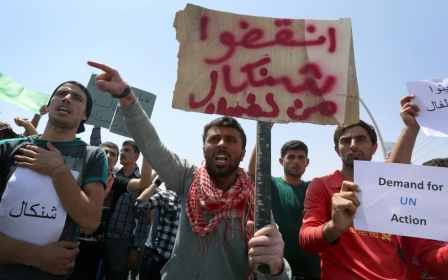Dozens killed in Iraq's Mosul air strike

At least 50 people were killed in parts of the Sunni Iraqi city of Mosul on Wednesday, as government air strikes and Kurdish militia shelling pounded the city which is under Islamic State (IS) control since June.
Meanwhile, several suicide bombs also rocked Baghdad, where 47 have reportedly been killed in the Shiite parts of the capital, according to the BBC.
AFP has put the casualty figure significantly lower at around 30, although it notes that further blasts in the Ur district, north of Sadr City, killed five and injured at least a dozen more Iraqis.
No group has thus far taken responsibility for the bombing, although militants who control large swarthy of western Iraq are often accused of being involved.
During the last few days, Kurdish militants from Syria and Iraq have clashed with IS fighters, with the outlawed Turkish Kurds also urging for unified Kurdish action to check further militant advances.
The majority of today's casualties are believed to have been killed in a government air raid on Mosul.
Medical sources say the raid hit a prison run by IS. However, the military spokesman for the prime minister said an Islamic court formed by the Sunni militants was the target.
Some 300 prisoners were reportedly released by the strike.
Earlier, a senior Kurdish official warned that 50,000 members of the Yazidi religious minority trapped in mountains to the west faced death if they were not rescued soon. Some 500 from the minority are already believed to have been killed in the last week.
The Yazidis fled there with few supplies after fighters from IS overran the town of Sinjar at the weekend.
Stay informed with MEE's newsletters
Sign up to get the latest alerts, insights and analysis, starting with Turkey Unpacked
Middle East Eye delivers independent and unrivalled coverage and analysis of the Middle East, North Africa and beyond. To learn more about republishing this content and the associated fees, please fill out this form. More about MEE can be found here.




